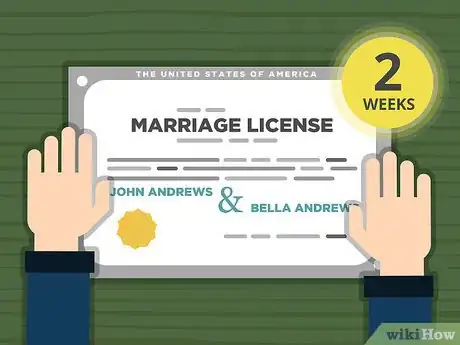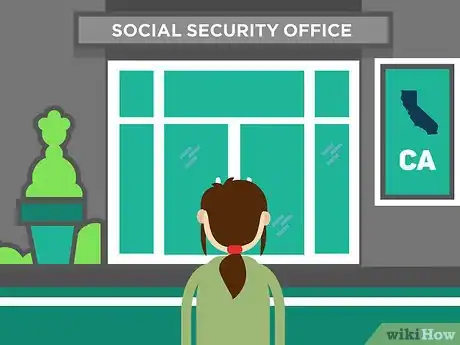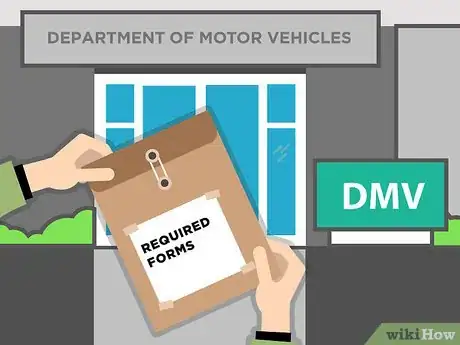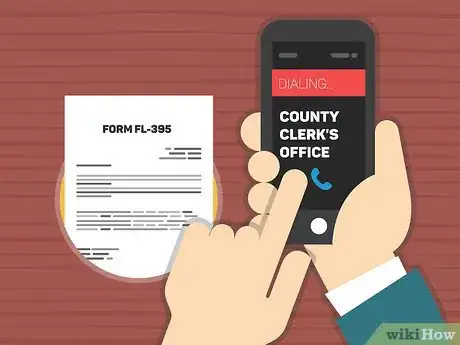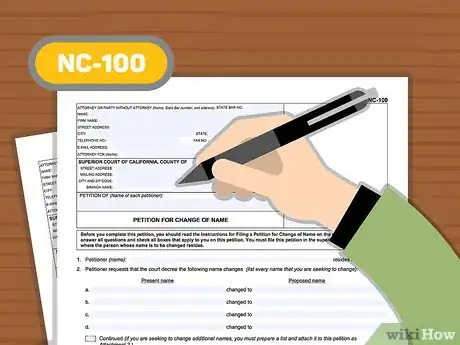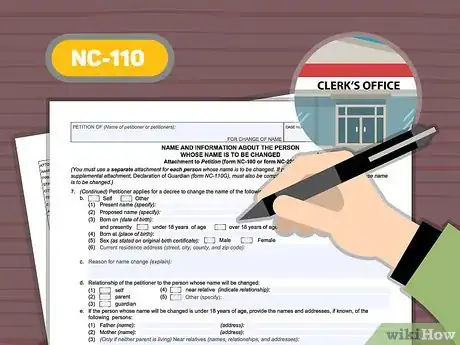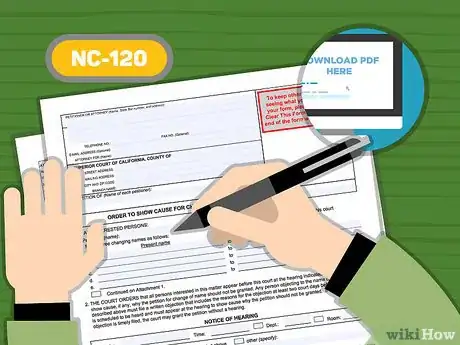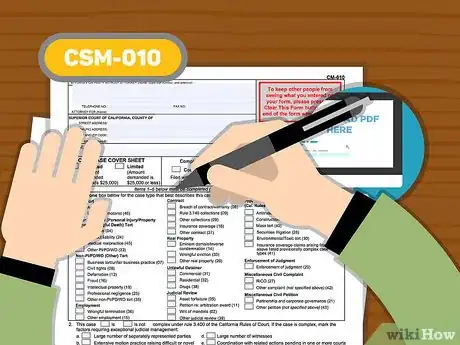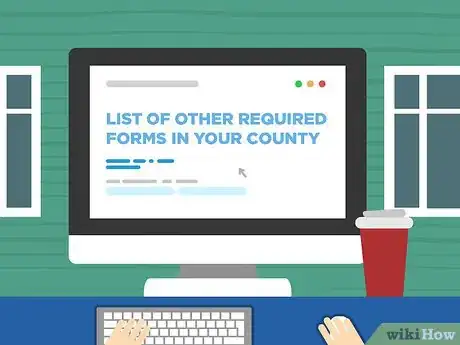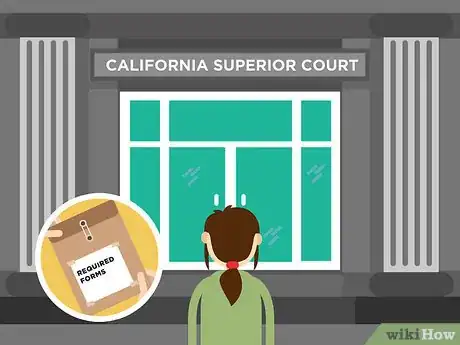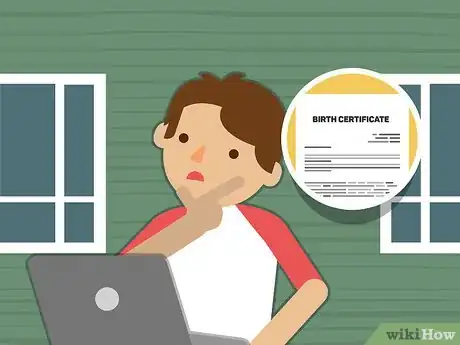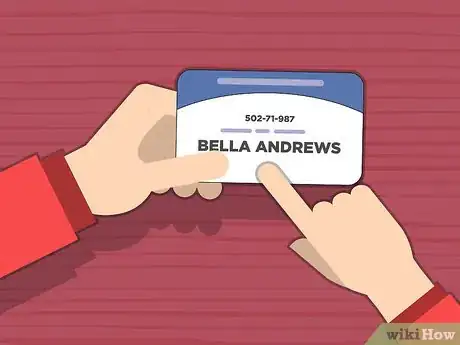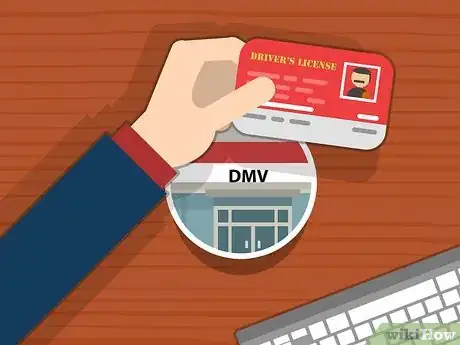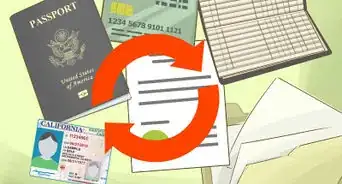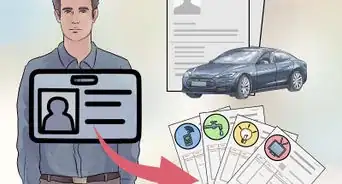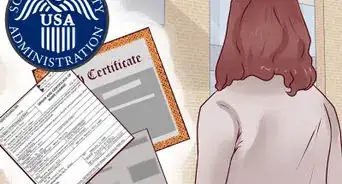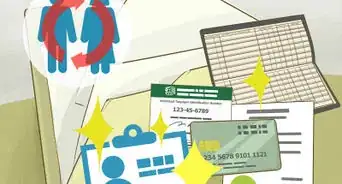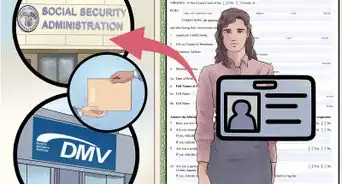This article was co-authored by Clinton M. Sandvick, JD, PhD. Clinton M. Sandvick worked as a civil litigator in California for over 7 years. He received his JD from the University of Wisconsin-Madison in 1998 and his PhD in American History from the University of Oregon in 2013.
There are 7 references cited in this article, which can be found at the bottom of the page.
wikiHow marks an article as reader-approved once it receives enough positive feedback. In this case, 86% of readers who voted found the article helpful, earning it our reader-approved status.
This article has been viewed 233,542 times.
You may want to change your name for many reasons. You might have recently been married or divorced, undergone gender reassignment or just want to legally have a different name. Whatever the reason, you can follow these steps to help you change your name successfully if you are a California resident.
Steps
Changing Your Name After Marriage or Divorce
-
1Get a marriage license. Once you fill out a marriage license, you need to submit it to get certified by the state. Once you send it in, it should take about two weeks to receive the certified license in the mail. This will be the legal document you show to all the relevant agencies in order to change your name.[1]
-
2Go to the Social Security Office. Once you have the certified version of your marriage license, you need to go to the Social Security Office (SSO). You will need to take your marriage license and a valid form of ID such as a driver's license or passport. You will also have to fill out the Social Security SS-5 Form. Once they approve your documentation, you will receive a form that states your name is officially changed.
- To save time, you can fill out the SS-5 Form ahead of time. You can find it on the SSO website at: http://www.socialsecurity.gov/forms/ss-5.pdf
- You can also send in copies of the SS-5 Form and your documentation to the SSO. They will process it and send you your new social security card by mail.[2]
Advertisement -
3Visit the DMV. Once you have the form from the SSO, you can go to the DMV and get the name of your driver's license changed. You should take your marriage license, the form from the SSO or your new card if you have already received it, and your old license. When you get there, fill out a Driver License or Identification Card Application (DL 44). The DMV will take your picture and thumbprint you. You will also have to pay an application fee.
-
4Change your name after a divorce. If you want to change your name because of divorce, you need to contact the County Clerk's Office where you filed your divorce. Give them your case number, your case name, and the date of the judgement, order, or filing. Also include a copy of the Notice of Entry of Judgment, Form FL-190. You also must complete the Ex Parte Application for Restoration of Former Name After Entry of Judgment and Order, which is Form FL-395. The process should take 2-4 weeks to process.
- These forms are available on the California Court's website. You can enter the form numbers at: http://www.courts.ca.gov/forms.htm
- Your case name is the name of the parties involved.[5]
Changing Your Name for Other Reasons
-
1Fill out the Petition for Change of Name form. The form that you must fill out to legally change your name in California is the Petition for Change of Name form, or the NC-100. On the form, you have to include your name, your attorney's name if you have one, your address and your phone number. You should also include the mailing address of the court where you will file your petition and the court's branch name. You must answer all questions and check all boxes on form NC-100. Provide your present name and your new name. Make two copies of this form.
- The questions on the form are basic person information questions, such as name, address, residence, phone number, e-mail, and what your new name will be.
- The form has additional lines if you are changing the names of others, such as a child or a near relative.
- You may get the form NC-100 at the superior clerk of court's office or from the California Court's website at: http://www.courts.ca.gov/documents/nc100.pdf
- You can get the court's branch name by asking at the clerk's office or by checking online to locate a court in your county. You can also find the superior court near you, travel directions and phone numbers online at: http://www.courts.ca.gov/find-my-court.htm[6]
-
2Fill out the Attachment to Petition form.[7] This form, also known as the form NC-110, gives the court information about the person whose name is being changed. You will be asked to provide your current name, where you were born, your current address, and the reason for the name change. You can get form NC-110 at the clerk’s office or on the California Court's website at: http://www.courts.ca.gov/documents/nc110.pdf
- You should make two copies of this form as well.[6]
-
3Fill out the Order to Show Cause for Change of Name form. This form, also known as the form NC-120, also is required for a name change in California. The form does not require you to give any new information, but simply asks that you list your current name and proposed new name. This form is available at the clerk's office or can be accessed online from the California Court's website at: http://www.courts.ca.gov/documents/nc120.pdf
- You should make two copies of this form.[6]
-
4Fill out the Civil Case Cover Sheet form. This form, also known as the form CSM-010, acts as a cover page for your name change petition. You can get this form at the clerk's office or online at the California Court's website at: http://www.courts.ca.gov/documents/cm010.pdf
-
5Check for any other required forms. You should request a list of any other forms required by the court in the county of your residence. This can include criminal background checks. The court that is located in your county typically distributes lists from the court clerk's office. All of the required paperwork must be completed before the official filing and request for a hearing date at the court in the county of your residence.
- Some county branches provide a link to the required list on the court's website.[6]
-
6File the forms. You need to file the forms with the California Superior Court. You also need to pay the required filing fees. You can locate the appropriate branch where you should file your paperwork by using the California Court listing on the main website at: http://www.courts.ca.gov/find-my-court.htm[Image:Change Your Name in California Step 5 Version 4.jpg|center]]
- Remember to request a date for your name change hearing when you file the forms.
-
7Purchase a legal advertisement. When you change your name, you usually have to buy a legal advertisement in a newspaper in your county. You have to publish the Order to Show Cause for Change of Name once per week for four weeks. This is all the information that was requested in form NC-120. Your advertisement must include your current name and the name you are changing it to. It also has to include detailed information about the hearing, including the address of the court, the department and room, and the date and time of the official hearing. There are exceptions, though. You do not have to publish your name in the paper if you are changing it to reflect your gender identity, or if you are changing it to avoid stalking. Check with your court's law library to see if you have to publish your name.
- Ask the clerk of courts for a list of newspapers where you may publish a valid legal ad. The cost of the ad will vary from paper to paper.[6]
-
8Attend your hearing. Most name-change hearings are fairly straightforward. If the judge asks you any questions about your reasons for changing your name, answer clearly and honestly. Bring all of your documentation to your hearing. This includes proof that you published the advertisement for the required amount of time. If the judge approves your request, you'll be given a name change court order, probably by your local civil court clerk.
- If the judge denies your request, get a copy of the denial and try again.
- Either way, you need to make a copy for your records.[6]
-
9Understand how to change your gender along with your name. If you are changing your name because you have recently changed your gender, you no longer have to file any separate official paperwork with the State of California. You can simply change your gender with the State Registrar. You do this by petitioning for a new birth certificate from the Registrar. You must have a signed statement from your physician indicating that you underwent appropriate treatment for gender transition.
- Once you file the petition, the Registrar will hold a hearing and judge the validity of the physician's letter. Once it is approved, your new birth certificate will be available within 30 days.
- Once you get your new birth certificate, you can continue with the proceeding to change your name.
- This is only true if you were born in the State of California. If you were born in another state, you have additional forms you have to fill out.[8] [9]
Changing Your Documents and Information
-
1Get a new Social Security card. Once you legally changed your name, you need to get a new Social Security card. You can take your court order to the Social Security Administration (SSA) office. You will also need your birth certificate, a photo ID (such as a driver's license, passport or state ID), and a completed application for a new Social Security card. You can find this application online at: http://www.socialsecurity.gov/online/ss-5.pdf. You should get your new card in the mail within 10 days after you visit the office.
- If you can't go to the office, you can mail in a certified copy of the application and all required information to the SSA.[10]
-
2Obtain a new driver's license. Once you have a new Social Security card, you will also need a new driver's license to reflect your name change. You have to visit your local DMV to obtain a new driver's license. You should take your new Social Security card, your court order and your old driver's license or state ID. Once you arrive, you have to fill out a Driver License or Identification Card Application (DL 44). You will have your picture taken, get your thumbprint taken and pay an application fee. The DMV will then process the paperwork and give you a temporary driver's license to use until your new one arrives.[11]
-
3Change your name on all your other documentation. After you change your federal and state issued IDs, you need to change your name on your other important accounts and documents, including your bank accounts, credit cards, leases or mortgages, car titles, voter registration and your U.S. passport. You also need to change your name at places of business that you frequent, including your files at any medical or dental offices and on post office boxes.
- Now that all your documentation is in order, you can start using your new name. Introduce yourself with your new name and use it to sign checks and other documents.
References
- ↑ https://www.rocketlawyer.com/article/how-to-get-a-legal-name-change-in-california-after-getting-married-.rl
- ↑ https://www.rocketlawyer.com/article/how-to-get-a-legal-name-change-in-california-after-getting-married-.rl
- ↑ http://www.dmv.ca.gov/portal/dmv/?1dmy&urile=wcm:path:/dmv_content_en/dmv/dl/dl_info#two504
- ↑ https://www.rocketlawyer.com/article/how-to-get-a-legal-name-change-in-california-after-getting-married-.rl
- ↑ http://www.courts.ca.gov/22491.htm
- ↑ 6.06.16.26.36.46.5http://www.courts.ca.gov/22489.htm
- ↑ Cal. Code of Civil Procedure §1275, et seq.
- ↑ Cal. Health and Safety Code §§103425-103445
- ↑ http://www.courts.ca.gov/25797.htm
About This Article
To change your name in California after marriage, you’ll need to apply for a certified marriage license, which usually takes about 2 weeks to arrive. Once you receive the license, take it to your Social Security Office with a piece of ID and complete the SS5 form to change your name. After you receive confirmation from the SSO, take it to the DMV to have your name changed on your driver’s license. If you’re trying to change your name after a divorce, contact the county clerk’s office where you filed your divorce papers. Provide them with your case name, which will be your name and your ex-partner’s name, your case number, and the date of the judgement. They will then process your application for a name change. To find out how to change your name in other circumstances, such as personal choice, keep reading!
